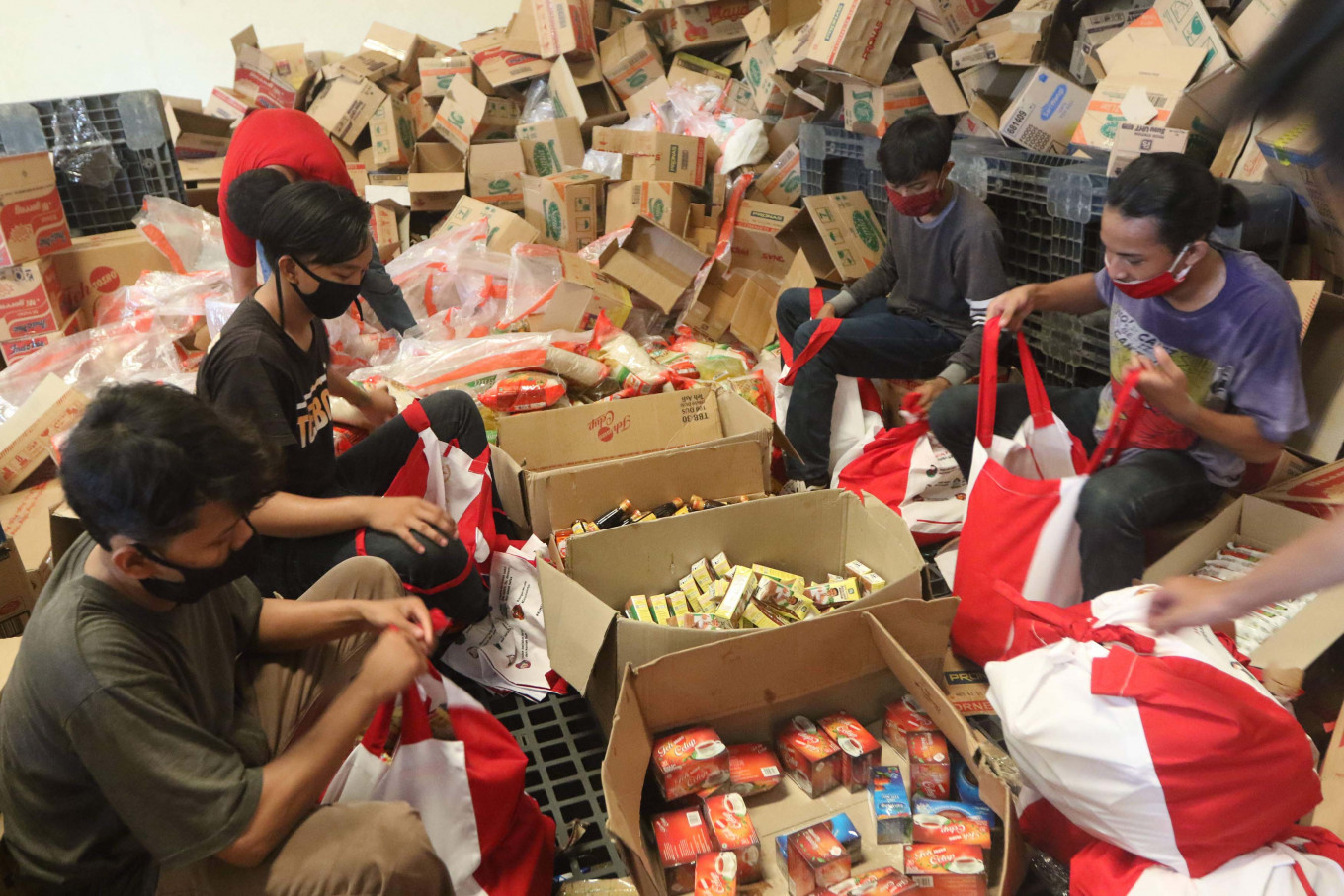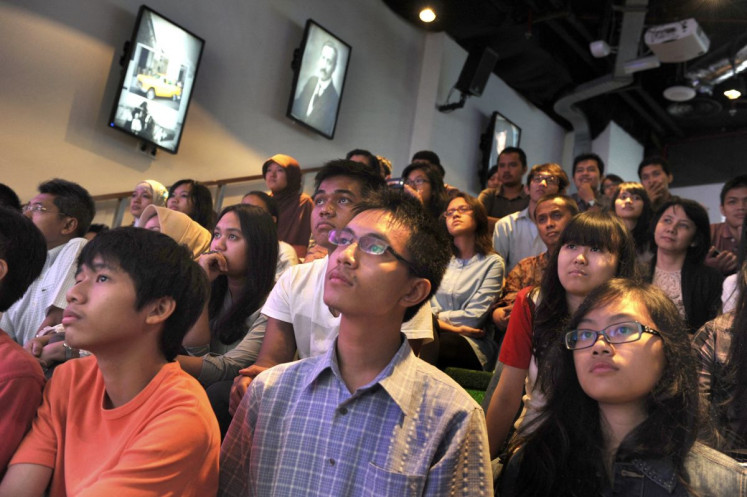Popular Reads
Top Results
Can't find what you're looking for?
View all search resultsPopular Reads
Top Results
Can't find what you're looking for?
View all search resultsBe transparent about ‘bansos’
As the economy seems to be under control, it is entirely valid to question the need for Jokowi's opaque budget adjustment.
Change text size
Gift Premium Articles
to Anyone

President Joko “Jokowi” Widodo, in his final months in office, is dealing with one of the most difficult challenges of his tenure. While, for better or worse, people consider his major programs a done deal, the highly popular leader is now facing the test of gracefully letting go of power.
People are no longer judging him by his day-to-day capabilities at the job, but rather whether he can act as a statesman and show the accordant respect for the law and ethics – whether he can remain someone the Indonesian people can look up to. This is less about what he does than what he refrains from doing, given the power at his disposal.
And as the 2024 election draws closer, in which his eldest son Gibran Rakabuming Raka is running for vice president alongside his Defense Minister Prabowo Subianto, it is clear that the contest is personal to Jokowi, a situation that may be clouding his judgement. More and more people have noted aberrations in the President’s behavior that appear to have at least something to do with his son’s bid for the nation’s second-highest office.
Jokowi has been visiting regions, especially in Central Java and East Java, to distribute government bansos (social assistance) during the campaign season. Coordinating Economics Minister Airlangga Hartarto and Trade Minister Zulkifli Hasan, the respective chairmen of the Golkar Party and National Mandate Party, have followed the President’s lead in distributing state aid. The two parties are part of the coalition supporting the Prabowo-Gibran ticket.
It was revealed recently that the President had also ordered the reallocation of Rp 50 trillion (US$3.17 billion) from this year’s state budget to deal with the possible impacts of geopolitical risk. Airlangga said part of the funds would pay for fertilizer subsidies for farmers, but the Finance Ministry has refused to specify what exactly will be covered by the new allocation.
While there has been a global economic slowdown, the current economic conditions do not warrant such an opaque, last-minute reallocation. Indonesia recorded 5.05 percent economic growth last year, down slightly from the 5.3 percent recorded in 2022. Inflation continued to decrease to 2.57 percent in January, from the previous month’s 2.61 percent, and is now at its lowest level in 20 years.

As the economy seems to be under control, it is entirely valid to question the need for the budget adjustment, especially after the government earmarked Rp 496.8 trillion for social aid this year, a figure surpassing the allocations for the past few years and nearly on par with the record Rp 498 trillion worth of social aid distributed in 2020 amid the COVID-19 pandemic.
As taxpayers and citizens, the Indonesian people have the right to know how the state budget is planned and spent – and whether it will go back to the people or be used to serve the private interests of public officials.
The President must remember that in the election year, especially with his son running, every move he makes is under public scrutiny. And if those moves are associated with the allocation of state resources and personnel, it will not be difficult to look for evidence in the case of any irregularities.
At the height of the pandemic, the Corruption Eradication Commission (KPK) arrested former social affairs minister Juliari Batubara on charges of accepting bribes from private vendors of COVID-19 food aid. The Indonesian Democratic Party of Struggle (PDI-P) politician was found guilty and sentenced to 12 years in prison.
It was not difficult to spot irregularities during the pandemic, and the antigraft agency may be able to discover more cases in the future.
These days, the President may want to remember a familiar Javanese expression about self-control: ngono yo ngono, ning ojo ngono, which can be translated as, “Even if you could, you shouldn’t.”
Hopefully, he can pass the test.










